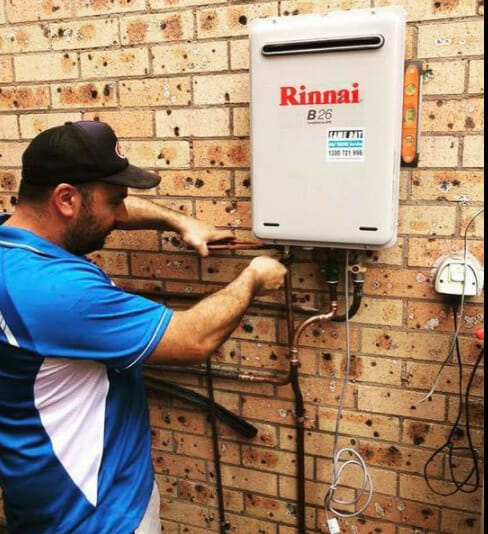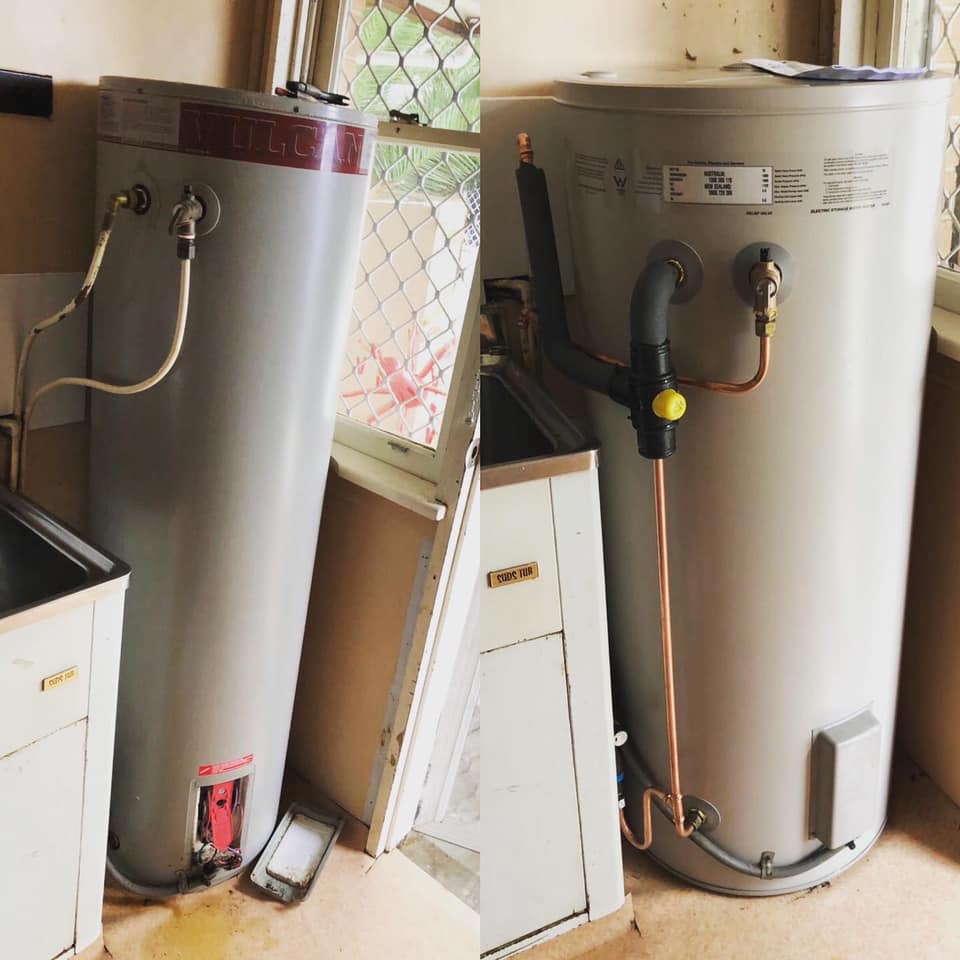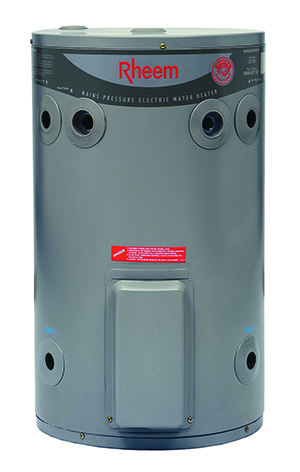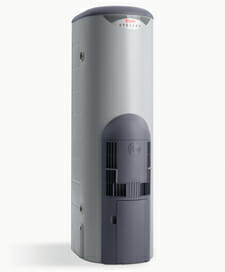Like most savvy hot water system shoppers, you’ve probably thought about what size system will give the best results for reliable hot water and budget-friendly energy bills. It’s important to get the right size hot water system for your needs so that you never run out of hot water or need to freeze while you wait for it to heat up.
Buying a larger system than what you need can result in higher than necessary electricity bills yet buying one too small can mean your family is constantly running out of hot water.
A simple way to determine what size of hot water system is right for your home is to measure capacity versus consumption.
The result should be a system that covers your needs easily without exceeding them.

7 Steps to Measure Your Hot Water Consumption
- How many occupants are in the home? The hot water needs of a large family will far exceed those of a single occupant. However, a hot water system can last over a decade, so it’s essential to consider your future in the purchase. For example, if you plan to rent out a room, add to your family, or become a landlord, a more extensive hot water system may be best. On the other hand, if your children are about to fly the coop and you’re planning to live as empty nesters, your new system could potentially be smaller than your previous installation.
- How many bathrooms do you have? Most modern homes have at least two bathrooms, a kitchen and built-in laundry, including many water-based appliances and fixtures. However, if your home has extra features beyond these, such as an ensuite, water closet or plumbed butler’s pantry, your hot water system will need to cater for them.
- How many people will use the outlets at once? Like most busy families, you may have multiple people needing water at once. Your hot water system will likely need to be able to keep up with someone doing the dishes while another is running a bath and someone else is upstairs having a shower. The more people using hot water at once, the bigger your system will need to be to ensure no one is left standing in the cold.
- When do you use hot water the most? Most households use hot water the most in the evening, with people rushing for showers, the dishwasher running and the washing machine doing a quick load. You’ll be grateful that you chose the more extensive system during these times. However, if you have a household of morning shower goers, you do your washing sporadically and set the dishwasher timer to run in the wee hours, you will be able to get away with a much smaller system.
- What type of shower heads do you use? They may seem like a second thought, but shower heads can significantly affect your hot water consumption. This includes the pressure and the head’s size, which can significantly influence the demand for your hot water system. Showers are the biggest consumers of hot water in a typical household, with an 8-minute shower having an average flow rate of 56 litres from start to finish.
- Will you be shopping for a gas or an electric system? The type of power source you choose for your system will impact the required size of the tank. For example, gas hot water systems can heat their water quicker, meaning they can replace the hot water as soon as it’s taken from the tank. On the other hand, electric hot water systems may require a greater reserve of pre-heated water to support the home when demand is high.
- Do you use peak or off-peak power? When using an electric hot water system, you can often reduce your costs by running your hot water under an off-peak tariff (usually between 10 pm – and 7 am). This can be achieved by setting timers on appliances and encouraging showers right before bed or first thing in the morning. However, if you plan to use off-peak tariffs to their maximum potential, it may be worth purchasing a larger system as the water will still be stored to be reheated at night.
Other Factors to Consider
Climate & Geographic Location
Climate and geographical location are crucial in determining the size of the hot water system you need. In colder areas, such as Tasmania and Victoria, a larger hot water system may be needed to ensure enough hot water is available to meet your household’s needs.
Conversely, in warmer areas, such as the Northern Territory and Queensland, a smaller hot water system may be suitable. Warmer temperatures require less energy to heat the water, which can result in a more efficient system. Additionally, in areas that experience more frequent and longer periods of sunlight, solar hot water systems may be a more suitable option as they can provide a sustainable and cost-effective solution for meeting hot water needs.
Energy Efficiency
The energy efficiency of a hot water heater can significantly impact the size of the hot water system you need. Consider the energy efficiency rating of your desired unit and choose a hot water system that is appropriate for your typical hot water usage.
Systems with a high energy efficiency rating can provide the same amount of hot water with a smaller tank or lower flow rate, helping to reduce your energy consumption and save on utility bills.
Cost
A larger unit will generally cost more to purchase and install but may save money in the long run if it meets the needs of your household. However, it’s important to balance the upfront cost with ongoing expenses such as energy bills, maintenance, and potential repairs. It may be more cost-effective to choose a smaller unit as long as it still meets your household’s hot water needs.
In addition to the cost of the unit itself, the cost of installation should also be factored into your decision. Some types of hot water systems, such as solar or heat pump systems, may require more complex installation procedures and, therefore, cost more to install. However, these systems may provide long-term cost savings through energy efficiency.
Hot Water Size Guide
Once you’ve got a good idea of your consumption, it’s time to find a suitable capacity to match.
Compare these system types with your family size to get an insight into the hot water system installation you will need for your home.
Electric Hot Water Systems – off-peak tariff
Household Size | System Size |
1 – 3 people | 250 litres |
3 – 5 people | 315 litres |
8 people | 400 litres |
Electric Hot Water Systems – peak tariff
Household Size | System Size |
1 – 2 people | 50 litres |
2 – 3 people | 80 litres |
3 – 5 people | 125 litres |
Gas Hot Water Systems – natural gas or LPG
Household Size | System Size |
1 – 3 people | 90 litres |
2 – 4 people | 130 litres |
3 – 5 people | 170 litres |
Gas Hot Water Systems – instantaneous flow
Outlets | System Size |
2 people | 20 litres |
3 people | 26 litres |
Over 3 people | 32 litres |
Solar Hot Water Systems
Household Size | System Size |
1 – 2 people | 180 litres |
3 – 4 people | 300 litres |
5 – 6 people | 440 litres |
Heat Pump Hot Water Systems
House Size | System Size |
Small house/Apartment | 200 litres or less |
Average 3-bedroom house | 200 – 300 litres |
Large 4+ bedroom house | 270L-400 |
Types of Hot Water Systems
The type of hot water system that you install can have a significant impact on a number of factors: your system’s lifespan, how instantaneous hot water will be delivered to your taps, shower heads, and other hot water outlets, whether you can easily access hot water during off-peak times, and the hot water system sizes available.
There are three main types of hot water systems, 2 of which come in either storage tank systems or continuous flow systems. For reference, a storage tank system stores your hot water in a tank, whereas a continuous flow system delivers instantaneous hot water. The three types of systems are electric hot water systems, gas hot water systems, and solar hot water systems.

Electric Systems
Continuous flow electric systems heat the water as it passes through a heat exchanger using an electric heating element. The water is heated on demand, and there is no storage tank, so they’re suitable for households with low hot water usage.
They are generally more energy efficient than traditional storage hot water systems, as they only heat water when it is needed. However, it’s important to remember that they require a larger electricity supply than other types of systems.
Electric storage hot water systems heat the water and store it in a hot water tank for later use. The system contains heating elements that are powered by electricity to heat the water as it sits in the tank. Once the hot water is used, the tank refills and the heating element turns on to reheat once again.
These systems typically have a thermostat to regulate the water temperature and a pressure relief valve to prevent the tank from becoming over-pressurised. The storage tank can be installed either indoors or outdoors, varying in size depending on your household’s needs. Click here to learn more about choosing the right size electric hot water system.
Heat pump hot water system VS. Electric hot water systems
While a heat pump hot water system uses electricity to operate, it’s important to understand that they are not the same as conventional electric hot water systems. Heat pump hot water systems are more energy efficient as they use a heat pump to transfer heat from the air or ground to heat the water.
This means they use less electricity to heat the same amount of water than electric systems. However, they typically have a higher upfront cost. Read our article on how to choose the right heat pump size.

Gas Systems
Continuous flow hot water gas systems work similarly to their electric hot water system counterparts but use a gas burner to heat the water as it passes through the heat exchanger. The gas burner is controlled by a thermostat, which maintains the desired temperature of the water.
When a hot water tap is turned on, cold water enters the unit, which triggers the gas burner to heat the water. As hot water flows out of the unit, fresh cold water enters, and the process repeats. This allows the system to supply hot water nearly endlessly.
Gas storage hot water systems work by using a gas burner to heat water stored in a tank. The burner heats the water to the desired temperature, drawing the heated water from the tank.
The hot water is then replaced by cold water, which is then heated by the burner, and the cycle continues. These systems usually have a pilot light to ignite the burner and a thermostat to regulate the water temperature. Learn how to choose the right gas hot water system size.
Solar Systems
Solar hot water systemsuse the sun’s energy to heat water as it flows through the solar collector area of panels. The heated water is then stored in a tank to be used later.
The system includes a gas or electric booster that kicks in when there isn’t enough solar energy to heat the water to your desired temperature. This ensures that hot water is available even during times with low sunlight or high demand. Read our guide on how to choose the right size solar hot water system.

Still unsure? We can help…
We understand that even with all the information at your disposal it can still be difficult to have confidence in your decision. As Australia’s biggest online retailer for hot water systems, we will have a brand, size, and type to suit every household, budget, and family. We can help you to find the best solution within our range, and have it delivered or installed on the same day, so you don’t have to be without hot water for a moment too long.
Contact our knowledgeable hot water technicians today to discuss your hot water needs or call our emergency line on 1300 721 996 if you need hot water quick smart.
